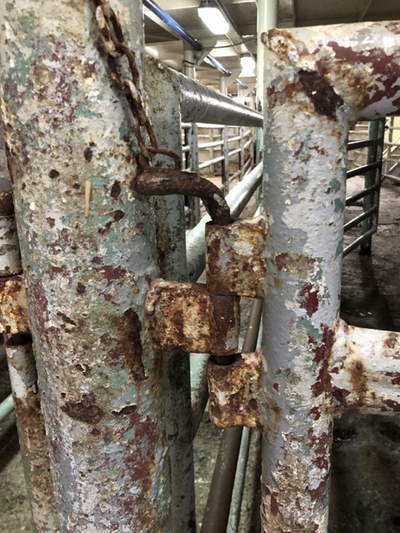Safety of Livestock Carriers Questioned
The German animal welfare organization Animal Welfare Foundation and the French environmental organization Robin des Bois have published a report on the safety risks associated with livestock carriers trading from the European Union. This snapshot of the fleet follows one produced by the organizations three years ago.
Currently, 64 livestock carriers are permitted to load European animals on EU-ports to then export them to third countries. The report states that nearly half of these vessels are flying the flag of a country listed by the Paris MoU as a black flag.
Only four were originally built as livestock carriers. The others were converted after around 30 years at sea. The average age of livestock carriers scrapped between 2018-2013 was 47 years. Some EU-approved vessels surpass this life expectancy: 30 (47%) of them are 47 years old or over, 17 of them are over 50 years old.
The report details mishaps and deficiencies within the fleet. For example, the Queen Hind capsized with 14,000 sheep on board while leaving Midia (Romania) on November 24, 2019. The Elbeik was declared a total loss after suffering a fire off Tarragona (Spain) in 2021.
The Paris MoU’s annual report for 2022 published in July 2023 lists the top three detention rates in terms of ship types as: livestock carrier 7.9%, general cargo/multipurpose ships 6.8% and tugs 6.5%.
For the period January 2021-December 2023, 10 ships were detained in various ports, totalling 12 detentions and 448 deficiencies. They were Bashar One Transport, Dania, Deala, Express M, Freesia, Mariona Star, Nabolsi I, Nader-A, Spiridon II and Tuleen.
The 54-year-old Togolese-flagged Janay was highlighted in the earlier report for having a record number of detentions (17). Since then, the vessel has been subject to an additional detention for 110 days in Midia in 2021. The reported grounds for detention included incorrect ISM system, invalid or missing documentation and various non-compliancies with the Maritime Labour Convention including non-payment of wages.
Pollution prevention deficiencies were reported for 75% (48 ships) in the years 2021-2023.
Fire safety deficiencies were reported for 78%. In October 2023, the EU-approved Brahman Express had to return to Darwin (Australia) after suffering a fire fortunately shortly after departure.
The EU-approved livestock carrier Elbeik made the headlines for its 92-day-long voyage from December 18, 2020 to March 19, 2021 with 1,776 calves that were finally slaughtered on arrival back in Spain. Then on August 6, 2021, the vessel was anchored off Spain when a fire broke out. The 57-year-old vessel was declared a total loss.
Thus, say the report authors, one disaster follows another in the maritime history of animal transport. “The transport of livestock by sea is a neglected issue, regarding animal welfare, safety for crews, as well as regarding the pollution generated by the substandard vessels used for this trade.”














